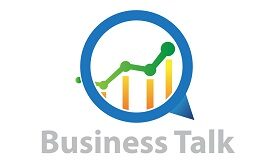The ABCD app and others similar to it are examples of personal finance applications. You can download the ABCD app on your tablet or smartphone to easily access your financial information while you’re on the go.
There are even apps that link directly to your bank accounts and credit cards for you to get a live update of your financial status. Features of the typical apps include budgeting, investment, billing and accounts, spending, etc. Some of the apps focus on investment management or retirement while others offer expense tracking and help create a budget. It is vital to look into your choices carefully to choose the app that is most appropriate for your needs and desires in terms of revenue.
The Advantages Of Apps For Personal Finance
- Convenience: This makes personal finance apps extremely useful; one of their primary advantages is the ability to access them easily. They spare you the bother of a trip to a bank or planner. They let you make decisions at home or anywhere and time you like.
- Budgeting Made Easy: Personal finance apps’ budgeting features help you stay on track and spend within your means. These apps can classify your purchases, notify you of impending bills, show you how to set financial goals and even reveal information about your spending patterns.
- Accessibility: These apps are more convenient than handling physical money since they allow you to get all the information at once. It provides information on your financial targets, deals, and balance all in one place.
- Security: Specifically, relative to paper statements, personal finance apps are safer because they usually use encryption to protect your information.
- Savings: Some of the personal finance apps are available freely while others demand a subscription fee to enable users to access additional features. However, if you consider that these applications can assist you in avoiding unnecessary fees, it will be possible to save money in the long term.
The Cons Of Apps For Personal Finance
- Technical Problems: As is always the case with technology, technical problems or glitches may impact the accuracy of your financial data.
- Inaccurate Information: Personal finance apps depend on users providing accurate input to deliver accurate financial information. Inaccurate financial data could result from a mistake or a forgotten transaction, disrupting budgeting.
- Possibility Of Overspending: Quick access to all your financial data on your phone may also lead to impulsive or excessive spending.
- Lack Of Personalisation: Although personal finance apps have helpful features, they might not consider your financial situation or objectives. This could result in general advice not tailored to your particular requirements.
- Privacy Concerns: There is debate as to whether the personal data that is being gathered and stored by the apps may be at risk from hackers or privacy violations.
People use personal finance apps mainly for their mobility and simple budgeting. Yet, they also have drawbacks. These differ from their benefits. Before choosing a personal finance app, you need to assess your needs and preferences. This step is crucial for effective financial management.



